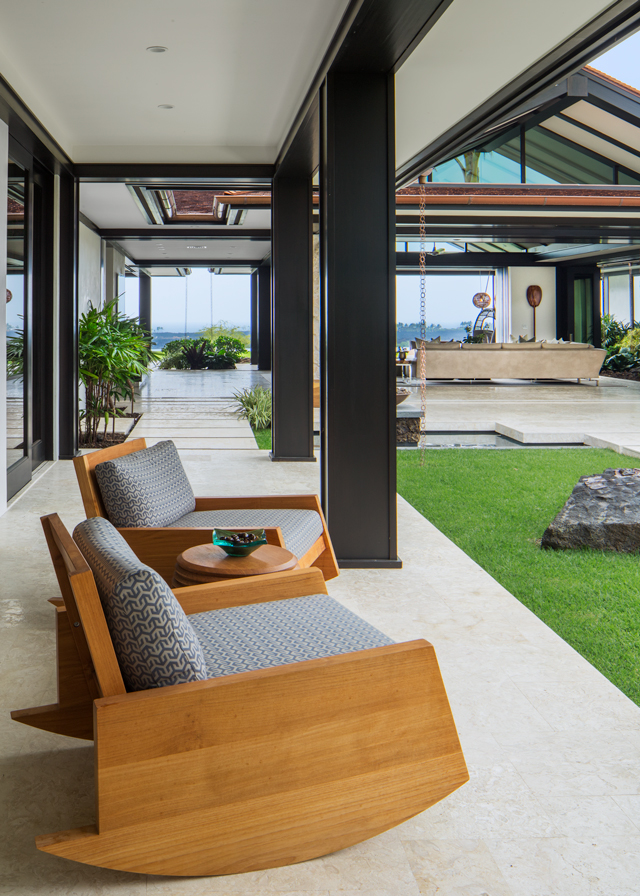Hawaii offers an exceptional environment for commercial land developers, with opportunities spanning retail, hospitality, residential, and mixed-use projects.
The unique geographic, economic, and cultural attributes of the Hawaiian Real Estate markets create a dynamic landscape that continues to attract developers seeking to capitalize on the state and its consistent demand for high-quality commercial spaces, as well as its status as a global travel, tourist, and retirement destination.
The most popular locations for commercial land development in Hawaii are characterized by their strategic positioning, robust infrastructure, and alignment with the demands of both residents and visitors.
In Honolulu, the urban core of Oahu, commercial land development thrives due to the city’s role as the state’s economic hub.
Retail spaces, office complexes, and mixed-use developments dominate the market in areas such as Ala Moana, Waikiki, and Kakaako. Ala Moana’s proximity to major transportation routes and its established retail and dining presence make it a prime location for upscale commercial development.
Waikiki, renowned for its tourism-driven economy, is an attractive site for themed resorts, boutique hotels, and luxury retail centers, catering to millions of annual visitors.
Kakaako has emerged as more of a mixed-use district, combining residential condominiums, office spaces, and retail developments to create a vibrant, walkable urban community.
On Maui, areas such as Lahaina and Kihei present significant opportunities for resort and hotel development, particularly those focused on eco-tourism and luxury experiences.
Lahaina, steeped as it is in historical and cultural significance, attracts visitors seeking a more immersive Hawaiian experience, making it an ideal location for boutique hotels and cultural tourism initiatives.
Kihei, with its growing residential and commercial infrastructure, supports a mix of retail and hospitality projects designed to accommodate the increasing population and the needs of the local community.
Kauai, with its lush landscapes and focus on sustainable development, offers unique opportunities for commercial developers prioritizing eco-conscious and sustainable commercial land development projects in Hawaii.
Princeville and Poipu are particularly attractive for developers seeking to build resorts and gated communities that blend seamlessly with the island’s natural surroundings. Princeville’s established reputation for luxury accommodations and golf courses makes it a magnet for high-end developments, while Poipu’s sunny climate and beachfront appeal position it as a prime location for both hospitality and residential projects.
On the Island of Hawai’i or the Big Island, Hilo and Kona serve as focal points for commercial land development.
Kona, driven by tourism and agriculture, offers opportunities for themed resorts, shopping centers, and cultural venues that integrate the area’s heritage with modern conveniences.
Hilo, as the island’s economic and administrative center, supports retail developments and mixed-use spaces catering to local residents and government operations.
The diversity of the island’s landscapes also provides unique settings for agricultural tourism ventures and eco-resorts, which align with the growing demand for sustainable travel experiences.
Commercial land developers in Hawaii also benefit from the state’s stable economy, driven by tourism, real estate, and agriculture.
The annual influx of millions of visitors ensures consistent demand for accommodations, retail spaces, and recreational facilities, creating a reliable market for commercial ventures. Additionally, Hawaii’s diverse population fosters an equally dynamic local market, supporting developments that cater to both residents and tourists.
The types of commercial land development in Hawaii are varied, allowing developers to align projects with their expertise and market demands.
Retail developments range from large shopping centers, such as Ala Moana Center, to boutique retail spaces targeting niche markets.
Themed resorts and hotels remain a cornerstone of Hawaii’s commercial landscape, with opportunities to incorporate eco-tourism, wellness tourism, and luxury experiences.
Condominium developments and gated communities provide options for developers to address the state’s growing housing needs while catering to affluent buyers seeking exclusivity and privacy.
Mixed-use projects integrating retail, residential, and recreational spaces are becoming increasingly popular, reflecting the global trend toward sustainable, walkable communities.
The benefits and potential gains for commercial land developers in Hawaii are substantial. The state’s limited land availability creates opportunities for developers to achieve premium prices and high demand for strategically positioned projects.
Hawaii’s natural beauty and cultural heritage enhance the marketability of developments, allowing for creative and innovative project designs that attract diverse clientele. Additionally, the state’s commitment to sustainability and renewable energy opens pathways for developers to align projects with these values, benefiting from incentives and support for environmentally responsible initiatives.
Hawaii presents an exceptionally viable environment for commercial land development, with a diverse spectrum of commercial investment opportunities ranging from retail and themed resorts to residential communities and mixed-use projects.
The unique blend of natural appeal, economic stability, and cultural significance offers Hawaiian commercial land developers a unique platform to create successful and profitable ventures that align with the evolving needs of both residents and visitors.

